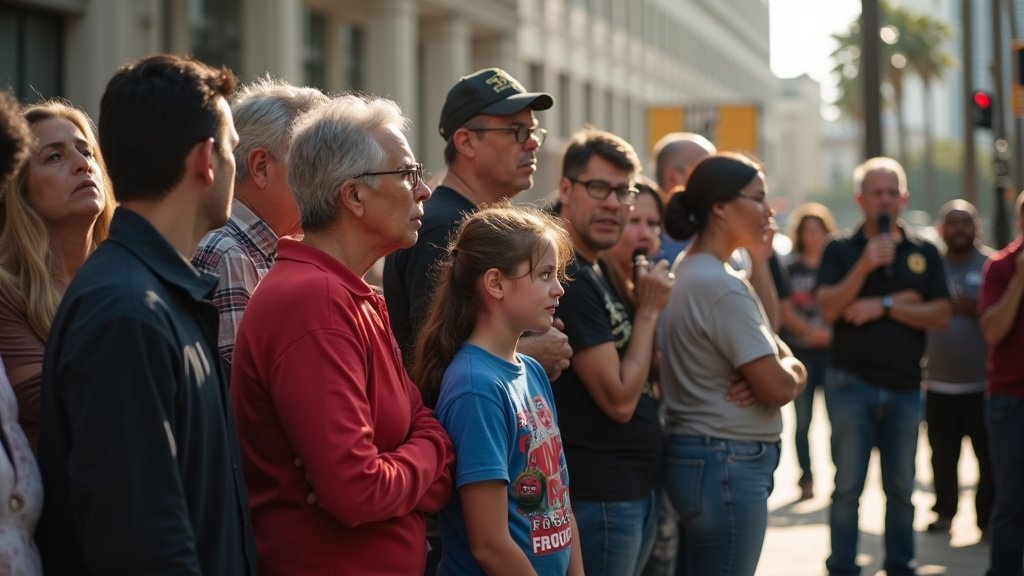A federal judge has ruled that U.S. Immigration and Customs Enforcement (ICE) detainees held in Iowa county jails have been denied due process, a decision that highlights ongoing legal challenges to the nation’s immigration detention practices, specifically concerning ICE detainees due process rights. The ruling specifically addressed the government’s obligation to provide bond hearings for asylum seekers detained by ICE, a critical aspect of ICE detainees due process.
Background of the Ruling and ICE Detainees Due Process
The core of the federal judge’s decision centers on the denial of bond hearings for individuals in ICE custody, directly impacting ICE detainees due process. In one notable case, Maria Enriquez Reyes, an asylum seeker who had resided in the U.S. for two years without a criminal record, was detained during a routine check-in appointment with ICE. Her request for a bond hearing was initially denied by an immigration judge, citing a reinterpretation of immigration laws that has been increasingly challenged nationwide. The federal judge, however, found that this denial constituted a violation of Reyes’ due process violations and her fundamental rights to ICE detainees due process.
This situation is not isolated. Another detainee, Barrajas, also had a bond hearing ordered by a U.S. District Court judge after his request was denied by the immigration court. District courts across the country have largely sided with detainees in similar cases, concluding that they are entitled to bond hearings as part of their ICE detainees due process protections.
The Trump Administration’s Shifting Policies on Immigration Bond Hearings
These legal challenges are occurring against a backdrop of significant policy shifts implemented by the Trump administration regarding immigration detention and bond hearings. In July 2025, an internal memo from ICE Acting Director Todd Lyons reinterpreted Section 236 of the Immigration and Nationality Act. This reinterpretation argued that individuals who entered the U.S. without inspection must remain in detention throughout their removal proceedings. Previously, such individuals could request an Immigration bond hearings before an immigration judge to argue for their release while their case was pending, a right now challenged in the context of ICE detainees due process.
Under this new interpretation, release from detention became contingent on discretionary parole from DHS, a process described as rare. The Board of Immigration Appeals (BIA) subsequently upheld this interpretation, mandating that immigration judges deny bond requests from those who entered without inspection. This policy change aimed to close what ICE described as a “loophole to our nation’s security”, but has led to significant concerns about ICE detainees due process.
Broader Implications for Due Process in Iowa and Nationally
The ruling in Iowa is part of a larger national debate and series of lawsuits questioning the due process violations afforded to immigrants in detention. Advocates argue that the lack of adequate bond hearings, the denial of access to legal counsel, and the prolonged detention periods violate fundamental constitutional rights, severely impacting ICE detainees due process.
In Iowa, ICE contracts with county jails to hold detainees, as the state does not have its own federal detention facilities. Historically, some Iowa jail detention facilities have faced scrutiny for their compliance with ICE detainer requests, with concerns raised about illegal imprisonment and due process violations when individuals were held without a court order. Currently, six county jails in Iowa have agreements to house ICE detainees, and the question of their ICE detainees due process rights remains paramount.
Legal Challenges and Future Outlook for Asylum Seeker Rights
The policy changes enacted by the Trump administration have been met with widespread legal challenges. Organizations like the American Civil Liberties Union (ACLU) have filed lawsuits arguing that these policies strip individuals of their right to a fair hearing, particularly impacting asylum seeker rights and overall ICE detainees due process. Courts have issued injunctions, blocking certain Trump administration policies that restrict due process for immigrants.
The federal judge’s ruling in Iowa underscores the ongoing tension between immigration enforcement objectives and the constitutional guarantee of due process. As legal battles continue, the outcome of these cases will shape the future of immigration detention and the rights afforded to individuals navigating the U.S. immigration system, with ICE detainees due process at the forefront of these critical discussions.





